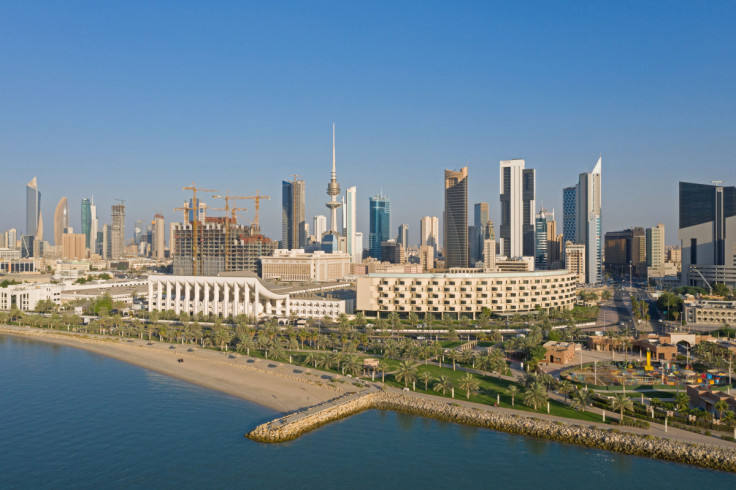Analysis-Battered By Opposition, Kuwaiti Royal Family Seeks To Project Unity

The appointment of additional royals to Kuwait's new cabinet, including a convicted defence minister, looks like a push by the ruling family to show unity and reassert power as it wrestles with an opposition-controlled parliament.
Rivalries within the royal family and feuding between government and the elected National Assembly have hampered reforms for years in the OPEC member oil producer.
Repeated elections and opposition wins led to years of political deadlocks.
The cabinet, formed by the Kuwaiti emir's son Prime Minister Sheikh Ahmad Nawaf Al-Ahmad Al-Sabah on Sunday after a third parliamentary election in 2-1/2 years, included five members of the Al-Sabah ruling family, more than recent governments.
It also marked the return of deputy premier and defence minister Sheikh Ahmad Al-Fahad Al-Ahmed Al-Sabah after he left government 12 years ago amid abuse of power and corruption accusations.
He denies wrongdoing.
Sheikh Ahmad has also been locked in a bitter rivalry with former prime minister and prominent member of the royal family Sheikh Nasser al-Mohammed al-Sabah.
Courtney Freer, fellow at Emory University in the United States, said the family seems to be trying to reassert its authority and Sheikh Ahmad's return to cabinet may signal a united front in the sense that he is said to be close to the prime minister.
"It also could potentially signal a loss for his political rival Nasser al-Mohammed and his clan," Freer said, adding that this all could change depending on how Sheikh Ahmad's relationship with parliament fares.
'POLARIZING FIGURE'
A Swiss criminal court convicted Sheikh Ahmad, who was also a power broker in international sports, of forgery in a trial in 2021. He faced accusations of using a bogus Kuwaiti coup plot to gain advantage over Sheikh Nasser and former speaker of parliament, Jassem al-Kharafi. He appealed the verdict.
The trial took place despite his public apology in 2015.
The case has divided the royal family and prompted Sheikh Ahmad to step back from some of his public sporting roles, including membership of the International Olympic Committee.
Bader al-Saif, assistant professor of history at Kuwait University, said Sheikh Ahmad is a polarizing figure who has been an integral part of Kuwaiti politics for the past two decades, whether in government or not.
"The onus is on the government to deliver, especially with an exhausted population plus a parliament with many members in support of the PM and al-Fahad (Sheikh Ahmad)," he said, adding that the honeymoon may be short-lived, given that Sheikh Ahmad will be in the spotlight and in a sensitive ministry.
The defence ministry has been marred in scandals including the case of an Airbus military aircraft order which has been under investigation by parliament.
Kuwait, a close U.S. ally which borders Iraq and lies near Iran at the north end of the Gulf, has a large U.S. military presence. The United States uses bases there as staging hubs, training ranges and logistical support for operations across the Middle East.
Kuwait's opposition held its ground in this month's election, but a significant number of neutral lawmakers could now tilt the balance of power towards a reform-committed government.
CONSTITUTIONAL AMENDMENT
Candidates in the Gulf state's elections run as individuals despite their political, tribal or religious affiliations. Its legislature has more influence than similar bodies in other Gulf monarchies, including the power to pass and block laws, question ministers and submit no-confidence motions.
Fiscal reforms, including passing a debt law that would allow Kuwait to tap international markets and address a heavy reliance on oil, have stalled amid years of tensions between different governments and parliaments.
Many lawmakers in the new parliament are in support of the prime minister and Sheikh Ahmad but his appointment may give the opposition additional firepower, experts say.
Ahmad al-Deyain, of the opposition Kuwait Progressive Movement said his return may indicate another crisis in the future.
Prominent lawmaker Marzouq al-Ghanim, a former parliament speaker and an ally to Sheikh Nasser, told the assembly on Tuesday that Sheikh Ahmad's appointment was unconstitutional because of his conviction.
Al-Saif said ruling family rivalries are a key features of governance and public life in modern Kuwait.
"Sorting the succession line - like the other Gulf states have done - is the surest way to quell family rivalries. That requires a constitutional amendment, which we are far from, or a clear public indication of how the succession line should be for the next generation," al-Saif said.
"Without that, expect more family infighting."
© Copyright Thomson Reuters 2025. All rights reserved.





















